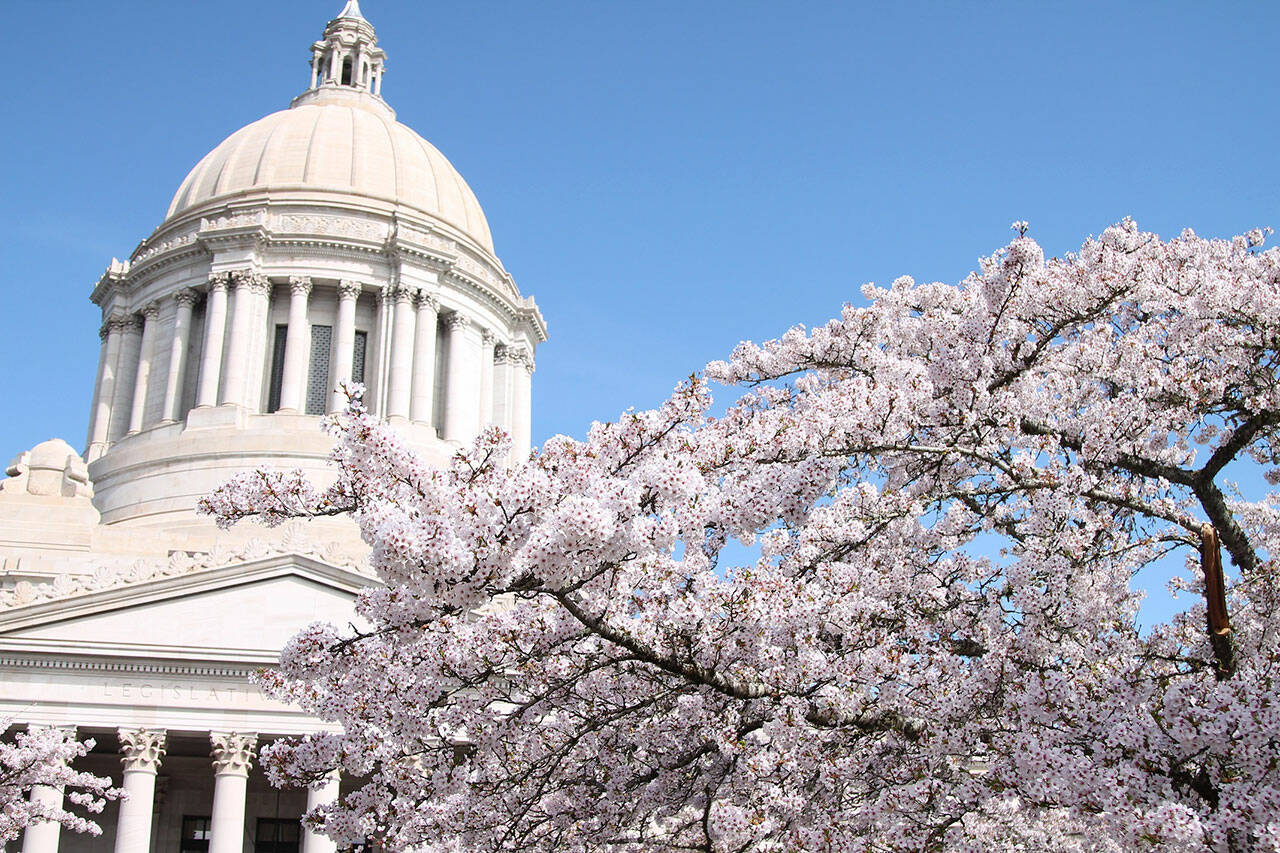Brooklynn Hillemann
WNPA News Service
Gov. Jay Inslee said lawmakers delivered on his call to take “big, bold, action,” after the 60-day legislative session came to a close March 10 in Olympia, working until the midnight deadline to push through a $64.1 billion supplemental state budget.
In addition to boosting spending by $5 billion in the current two-year budget cycle, legislators approved the first major transportation funding package since 2015.
The Democratic majority in both the House and Senate outlined priorities in the beginning of the year including addressing homelessness, combating climate change and correcting legislation passed the previous year.
Speaker of the House, Rep. Laurie Jinkins, D-Tacoma, said: “We wanted to advance every single Washingtonian, and we’ve done that with the work we’ve done.”
What passed
• CARES paused — One of the earliest actions of legislators was to pause the state’s long-term care benefit program by 18 months. Both Democrats and Republicans argued the program was not solvent with more than 473,000 residents opting out of the program for a private plan.
Additionally, lawmakers said the timing of a new payroll tax was not ideal with current inflation. Inslee signed the measure into law in January to delay the collection of the tax until July 2023. Legislators will reassess the program to address long-term solvency concerns.
• Gun restrictions — Legislators approved a bill prohibiting the manufacture, sale or distribution of gun magazines that hold more than 10 rounds of ammunition. The measure requested by Democratic Attorney General Bob Ferguson, makes Washington the 10th state to regulate magazine capacity.
Additionally, a bill was passed prohibiting weapons at ballot counting sites and school board meetings. The same legislation bans open carry of firearms at local government meetings and election-related facilities. Those with concealed pistol licenses would be exempt.
• Police reform — In the wake of the national uproar over George Floyd’s death in Minneapolis, Washington state lawmakers last year passed more than a dozen police accountability measures. Legislators argued the reforms had unintended consequences on police agencies, including restricting use of less-than-lethal munitions and the ability to respond to non-criminal, community care-taking matters, such as using force to bring people in crisis to get mental health help.
Bills passed this year addressed some of these issues, clarifying that officers may use .50 caliber less-than-lethal rounds, and can use reasonable force to take someone in crisis into custody. The bills define when police can use reasonable force. An additional bill proposing the loosening of restrictions on vehicular pursuit, stalled in the Senate on the final day of session.
• Move Ahead Washington — The 16-year plan billed as the greenest transportation package in state history is headed to the governor’s desk for signing. The nearly $17 billion package invests in transit projects including the building of new hybrid electric ferries, funding more walking and biking corridors, replacing the Interstate 5 bridge at the Oregon border and replacing fish passage culverts.
After scrapping a controversial 6-cent-per-gallon fuel export tax, the state will fund the package with revenue from the new cap-and-trade program, federal money, a one-time transfer of $2 billion from the state operating budget surplus and increases in vehicle and driver licensing fees.
• The budget — Squeezing in before midnight in the final hours or the session, the House and Senate Democrats passed a $5 billion boost to the state’s current two-year budget. The additional funds will be invested in programs to increase the number of school counselors and nurses, pay raises for state employees, increase rates for childcare providers and provide rental assistance.
What didn’t pass
• Criminalizing election lies — At the beginning of the session, Inslee advocated for a bill that would have criminalized elected officials or candidates lying about election outcomes if those claims resulted in violence. Inslee said in a January press conference, the measure was needed in light of ongoing “threats to democracy.” The legislation passed a Senate committee but did not receive a full vote on the floor.
• Emergency powers reform — Since Feb. 2020, Inslee has maintained a gubernatorial state of emergency because of the COVID-19 pandemic. Legislation which authorized legislative leaders to terminate an emergency after 90 days advanced to the floor but died after being pulled off nearly half-an-hour into debate. Democrats said there was no time to have a lengthy debate when so many other issues were waiting for approval.
• Tax relief — With billions in the state surplus, Republicans argued for significant tax cuts for all Washingtonians. Both Republican and Democrat backed bills proposed tax relief, but those efforts failed to receive hearings or pass their respective chambers. Those measures included proposing cutting the state sales tax by 1 percent and pausing the gas tax for a year. Within the House budget, Democrats included a proposed sales tax holiday where qualifying purchases over Labor Day Weekend would be sales-tax exempt, but ultimately scrapped the idea.



